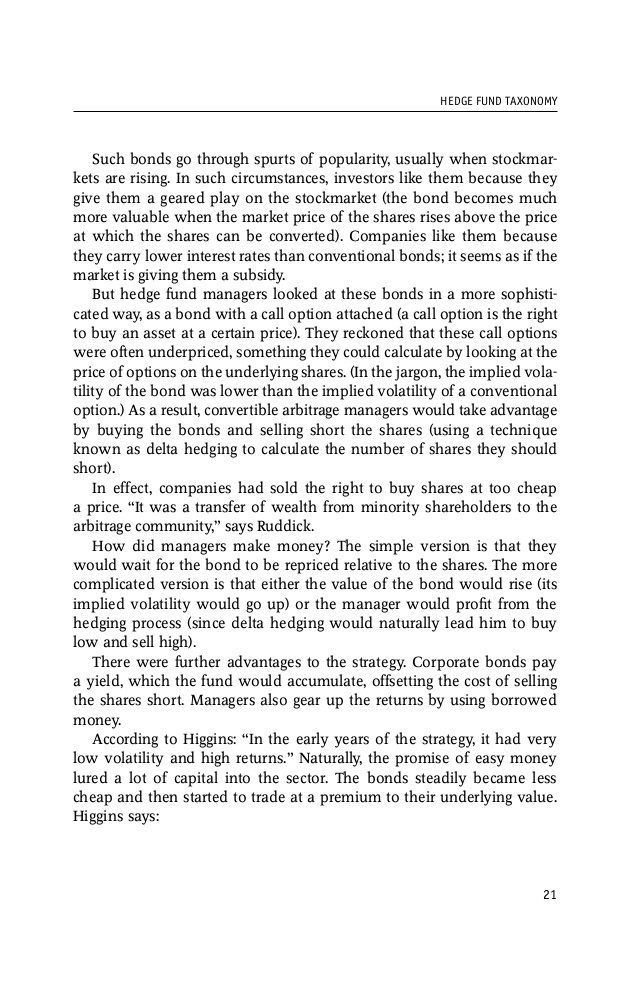Hedge fund traders making a swift return to investment banking
Post on: 16 Март, 2015 No Comment

Posted by Damon
The career path of an investment bank trader looking for a bigger pay day has always been straightforward – move to a hedge fund. Competition is incredibly tight for places on the buy-side and only a select group of elite traders with a demonstrable track record of solid performance make the cut. Why, then, are more people moving back to banking?
With hedge funds generally floundering. and large firms intolerant of underperformance cutting back on staff, investment banks suddenly look like a more attractive option. Senior portfolio managers and traders at hedge funds – usually with a career history in investment banking – are making the move back to the sell-side.
Massimo Amati, a former fixed income trader at Credit Suisse who moved to Millennium Capital Partners in 2011 before switching to SAC Advisors and finally Balyasny Asset Management, re-joined the bank earlier this month. This follows the recruitment of former staffer, Neilan Govender. in January following an eight-month stint at Brevan Howard.
James Binny, a portfolio strategist at Brevan Howard, joined Lloyds Banking Group at head of FX quantitative solutions earlier this year, while Laurent Favre, who spent just five months as an analyst at Millennium Partners, rejoined Bank of America Merrill Lynch. Both Hakim Khadira, a portfolio manager at Millennium Partners and Jacob George, an execution trader at Brevan Howard, have signed up to Citigroup. They have banking backgrounds.
Meanwhile, Jens Nystedt, who was a portfolio manager and global strategist at Moore Capital Management and previously worked at Deutsche Bank, has just joined Morgan Stanley’s investment management operation. Even quants are gravitating back to banks – Nico Weinert, an execution researcher at Man Group, has just signed up to Deutsche Bank.
It’s not as though banks are particularly safe places to be either currently. Front office employment continues to decline – FICC headcount has shrunk by another 10%, or 1,900 people – in the last quarter alone, according to new figures from research firm Coalition .
One UK-based hedge fund headhunter, who declined to be named, suggests that those moving away from hedge funds are doing so not because of the buoyancy of investment banking, but because they can’t cut it on the buy-side. “We’re still receiving countless numbers of applications from investment banks. Only a select few make it in and even less can make it work in the long-term Share on twitter ,” he says.
Certainly the churn at places like Brevan Howard, Bluecrest Capital Management and Millennium is great and tenures can be brief. Bluecrest’s CFO Andrew Dodd admitted last week that trader departures can be “slightly abrupt” if they don’t make the grade.
Anthony Keizner, head of the hedge fund practice at executive search firm Glocap, says that traders want to go back to what they know: “Traders are attracted to their large stable capital bases, and their banks’ substantial operational and trading platforms that facilitate them focusing on investing.”
What’s more, while multi-million packages are common for top investment staff at hedge funds, smaller hedge funds which have struggled to maintain profits have been swift to curtail compensation.
“These foreign banks have also been very competitive in compensation, with good payout ratios and paying high fixed compensation in terms of base salaries and first year compensation guarantees,” says Keizner. “For some, there’s also the perception that the bank may provide a longer career track and will be more tolerant of short-term dips in performance, but it remains to be seen whether roles back on the sell-side live up to that billing.”














